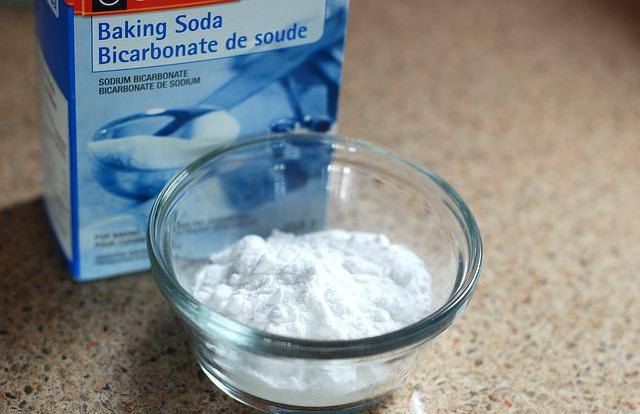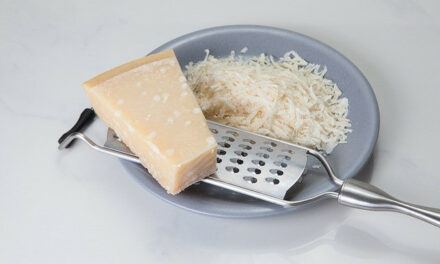Baking soda is a common household staple with multiple purposes ranging from baking, cleaning, exfoliating the skin and medically treating indigestion. Aside from all these basic uses, can baking soda be used in people with type 2 diabetes? Is Baking Soda Good For Diabetics? This article will answer all those questions (and more) on Baking Soda and Diabetes.
One of the problems people with diabetes face every day is basically how to live healthier and keep their blood sugar levels under control. Although baking soda cannot help with this larger goal, it can help with treating complications of diabetes such as diabetic ketoacidosis (DKA), which are mostly caused as a result of uncontrolled or poorly controlled diabetes mellitus.
Research studies have also revealed that baking soda may help prevent the spread of a rare but fatal fungal infection known as Mucormycosis, which can occur due to DKA.
Before jumping onto research on Baking Soda and Diabetes, let’s find out what baking soda really is…
What is Baking Soda?
Baking soda, also known as sodium bicarbonate and bicarbonate of soda, is a white powdered crystalline salt used for multiple purposes. It consists of sodium ions and bicarbonate ions.
Baking soda in its natural form is called nahcolite.
Sodium bicarbonate is available as a white crystalline solid or a fine white powder. Tablets and capsules containing baking soda are also available.
Now, let’s turn on to the benefits of baking soda…
Baking Soda Uses and Health Benefits
Baking powder can be used for;
- Cooking purposes
Baking soda is commonly used for making bread, baking cake and cookies, tenderizing meat, softening pulse, etc.
You can also add a pinch of baking soda to your coffee while brewing or to tomato sauce while cooking to reduce acidity.
- To promote oral hygiene
Baking soda can be used as a mouth wash and for teeth whitening.
Baking soda can freshen your breath as it can inhibit the growth of oral bacteria and neutralize bad odour.
It can also remove plaque and whiten the teeth. It is found as an active ingredient in some toothpaste.
- As a deodorizer
Baking soda can neutralize acidic scent molecules. So, it can be used as a natural deodorizer to remove the odor of sweat from the body.
- For exfoliating the skin
- As a shampoo
- As a cleaning agent
Baking soda can be used to clean and remove odor from surfaces and appliances such as ovens, fridges, kitchen countertops and tiles, grease-stained surfaces, microwaves, and unclog drainage pipes.
It can also be mixed with vinegar and lemon juice to control the growth of mold and bacteria.
- As an air freshener
It can be used together with essential oil as a natural air freshener.
- Cleaning and whitening of clothes
Adding bicarbonate of soda to laundry can help with the easy removal of dirt and stains from the clothes.
- In the fruit and vegetable industry
Washing and removing pesticides from vegetables and fruits.
- Polishing
It can be used in polishing silverware and cleaning scorched pots.
- Stain removal
It Can be used together with vinegar to remove stubborn stains from carpets/rugs.
- Bathroom cleaning
Cleaning the bathroom floor and surfaces such as the shower, sink, and bathtubs.
- To extinguish fire
It can be used to extinguish a small fire.
Health Benefits of Baking Soda
Baking soda is available in different forms – capsules, tablets, powders, and granules.
Some of its health benefits include;
- It is an antacid
Baking soda can reduce the level of acidity in the stomach.
It can be used as an antacid to relieve heartburn, stomach upset, and indigestion and prevent acid reflux. And, it is found in most antacid products.
- It may help to soothe/ relieve canker sores
- May delay fatigue and improve performance during exercise
- It is also used as a laxative during gastric lavage
- It can be used as local anesthetics
- May help to relieve itchy skin, prickly heat and sunburn
It can also be used to relieve pain from insect bites.
- Improve kidney function
It improves the function of the kidney, which may help to slow the progression of chronic kidney disease (CKD).
- Used in treating hyperkalemia
Baking soda reduces the level of potassium in the body. This makes it suitable for treating hyperkalemia and also reduces contractility of heart muscles, and improves heart function.
- In treating drug overdose
It can also be used in treating an overdose of tricyclic antidepressants.
- In treating tumors
It may help chemotherapy treatments/ medication to be more effective by neutralizing the site of the tumor and making it less acidic.
Now, let’s answer our main question – Is Baking Soda Good For Diabetics?
Is Baking Soda Good for Type 2 Diabetes?
Baking soda has two important properties, which have been shown to be good for people with type 2 diabetes.
- Anti-inflammatory properties
Baking soda has anti-inflammatory properties, which help to reduce the pressure on the spleen caused by insulin resistance and boost immunity.
- It can neutralize acidity in the body by increasing the pH levels
When it comes to the human body, here are a few examples of the range in the pH level of fluids in the body.
9 = Sodium bicarbonate
8 = Human pancreatic juice
1 = Hydrochloric acid
2 = Gastric juice
7 = Water (pH neutral)
7.35-7.45 = For humans, a normal blood pH
Naturally, the pH level of the human blood is regulated and balanced by chemical buffers such as sodium bicarbonate produced and secreted from the pancreas or reabsorbed and secreted back into the blood by the kidney.
However, there are conditions that can lead to the lowering of blood pH levels (acidosis). One such condition is uncontrolled or poorly controlled diabetes mellitus. It can result in a condition known as ketoacidosis or diabetic acidosis.
Diabetic acidosis can increase your risk of being infected with Mucormycosis, a severe and fatal fungal infection.
Taking baking soda has been shown to neutralize the acidity of the blood and increase the blood pH level to above 7, which can help to reduce the effects of DKA and the spreading of mucormycosis in the body.
What Does Research Say On The Use Of Baking Soda In Diabetics?
There isn’t a lot of research on the overall impact of baking soda on diabetes. But there are a few.
A study that used a disease model suggests that baking soda might assist with forestalling the spreading of mucormycosis, which can occur in people with diabetes and DKA.
Also, another study published in Biomed Central Nephrology Journal revealed that after administering sodium bicarbonate to diabetic patients with chronic kidney disease, there was an improvement in insulin resistance. Although, it was noted that overcorrection of metabolic acidosis with baking soda could produce the opposite effect, as too much sodium bicarbonate can actually lower insulin sensitivity.
Baking Soda Effect on Blood Pressure
Baking soda is a sodium (salt), oxygen, hydrogen, and carbon compound. When baking soda is consumed, it will be converted into sodium ions and bicarbonate.
Baking soda contains a considerable amount of sodium. 1 teaspoon of baking soda contains about 1000mg of sodium.
According to American Heart Association (AHA), adults should limit their sodium intake to not more than 2400mg daily. Consuming too much baking soda can result in excess water retention and increased blood pressure.
Baking Soda Effect on A1c
A1c is the average blood sugar level over the period of 3 months.
Your A1C levels can be used to diagnose and treat pre-diabetes and diabetes.
The lower your A1C levels, the lower your risks of developing diabetes-related complications.
Baking soda works on the acidity of the body, allowing the body to return to its original state, and it also help to fight diminishing diabetes.
Baking Soda Effect on Kidneys
Although, sodium bicarbonate ( baking soda) can help to slow the progression of kidney diseases by neutralizing and making the blood less acidic, too much of it can also disrupt the way the kidney functions.
Your kidneys may prevent filtering out the baking soda properly, and therefore, baking soda is not advised for those with unhealthy kidneys.
How Do Baking Soda Affect Diabetics?
Baking soda has several effects on people with diabetes. But before discussing that, you need to understand what happens in the body of a person with diabetes before the effect baking soda has on the body.
When there is not enough insulin to move the sugar to the tissues where they are needed for energy, these tissues begin to break down the fatty acid for energy leading to the production of ketones.
Excess ketones in the body make the body to be acidic, resulting in metabolic acidosis. Diabetic ketoacidosis (or DKA) can increase the level of sugar in your body and increase your risk of getting infected with other diseases.
DKA is a serious condition that can result in coma or death if not treated.
Symptoms of DKA include;
- vomiting
- nausea
- excessive thirst
- dry mouth
- frequent urination
- shortness of breath
- fatigue
- confusion
DKA increases the risk of getting infected with Mucormycosis.
Mucormycosis is a rare fungal infection
caused by molds called mucormycetes. This infection often occurs in the sinuses or lungs, skin and oral cavity, and it can be deadly.
This fungal infection commonly affects people with weakened immune systems. People with diabetes with DKA are at a higher risk of mucormycosis than those without DKA.
Symptoms of mucormycosis include:
- Fever
- blackened skin tissue
- swelling, tenderness, or redness
- blisters
DKA rapidly spreads mucormycosis. So, to prevent or take care of this situation, iron chelation and baking soda can be used to treat or prevent the spread of the infection.
Baking soda reduces extracellular activity and increases intracellular activity in the body by increasing the pH level.
When the pH is raised to the normal body pH, the body starts to function properly. It can help activate insulin which will stimulate glucose metabolism and inhibit lipolysis and proteolysis. This is effective in preventing and treating both mucormycosis and DKA.
Does Baking Soda Neutralize Sugar?
Increased acidity or a lower body pH increases insulin resistance. Taking baking soda can only help neutralise acidity to raise the blood pH level to be normal. By so doing, it can help to boost the normal function of the body system and reactivate insulin, but there is no scientific evidence that proves that baking soda can directly neutralize sugar in the blood or lower the blood sugar level.
Baking Soda Effect on Medication
Since baking soda can neutralize baking stomach acid levels, it means that it can interfere with the ability of the body to break down and absorb medications.
According to drugs.com, sodium bicarbonate is known to interact with a total of 302 drugs – 8 major, 180 moderate and 114 minor interactions. So, it is advised not to take baking soda together with other medication 2 hours before/after any medication.
How Much Baking Soda To Use For Diabetics?
Dissolve a ¼ to 1 teaspoon of baking powder in half glass of water and drink daily on an empty stomach. Slowly sip this mixture to prevent side effects like gas and diarrhea.
You can take it every two hours.
What Are The Side Effects Of Taking Sodium Bicarbonate?
Sodium bicarbonate may have the following side effects:
- Nausea or vomiting
- Constant headache
- Nervousness or restlessness
- Continuous loss of appetite
- Frequent urge to urinate
- Slow breathing
- Muscle pain or twitching
- Mood swings or changes in your mental state.
So, while taking sodium bicarbonate, see your doctor as soon as possible if any of the side effects persists or bothers you.
Who Should Not Take Baking Soda?
It is not safe to take high doses of baking soda over a long period of time, as its sodium content is high.
Likewise, it is not safe for individuals with certain medical conditions, such as high blood pressure, kidney or liver disease, or edema.
Pregnant women and nursing mothers should stay away from it unless directed by their doctor.
Takeaway
Taking baking soda is a simple and inexpensive way to help improve your body’s pH when the pH is low (acidic). It allows your body pH to return to a normal state. It is one of the active ingredients in antacids, and it can be used to improve heartburn, and indigestion and promote kidney function.
Research has revealed that baking soda can be beneficial to diabetics as it can help to prevent DKA, halt the spread of mucormycosis infection, and at the same time, helps fight diabetes.
Although Baking soda is available in different forms and can be administered in different ways, it is not a medication for any disease, nor is it a substitute for any prescribed drugs.
If you have DKA or any health condition that you think taking baking soda can help with, make sure to consult your doctor before taking it.















Hi there,
I have just learned so much from reading one article on your site! So much really useful information.
A friend who I’ve known for 30+ years has recently been told she has Diabetes. She’s right at the beginning of her journey of learning how to adapt her lifestyle to cope with this new diagnosis. I have given her a link to your website so that she can learn from all the detailed articles you have posted.
There’s so much to learn. Thanks for taking so much time to provide such helpful, information.
And Baking Soda, who knew? So many benefits, not just aiding diabetes. Really interesting & useful article.
Many thanks
Hello Chezstar,
We truly appreciate your kind words and the time you’ve taken to explore the information on baking soda and its potential benefits for individuals with diabetes. It’s heartwarming to hear that the article resonated with you and that you’ve shared the knowledge with a dear friend who’s embarking on a new journey with diabetes. Your support and care for your friend are truly admirable.
Navigating a new diagnosis can indeed be overwhelming, and having access to reliable information and resources can make a world of difference. Your thoughtful gesture of sharing the link to the article is like extending a helping hand on this journey of adaptation and learning. Your friend is fortunate to have you by her side, offering guidance and support during this time of adjustment.
Just as baking soda has its surprising and versatile benefits, our support systems and networks of friends can be equally versatile and uplifting. The journey ahead might have its challenges, but with the right information and a supportive circle, your friend can embrace the changes with confidence and a sense of empowerment.
As your friend explores the articles and resources available, remind her that the path to managing diabetes is about finding what works best for her unique situation. Every individual’s experience is different, and what matters most is finding a sustainable and balanced approach that aligns with her health goals.
Thank you for your heartwarming message and for being a source of inspiration and comfort for your friend. You’re contributing to a community of care, understanding, and shared knowledge, and that’s a wonderful thing to witness.
Best wishes.